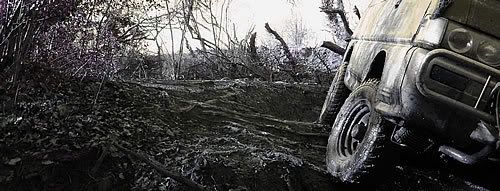Energizer wrote:Cons - replacing something that ain't broke.
Unless your driving really far from home of course.

Exactly the reason why it's justifiable.
Pro = Won't explode like auto's.
Have you had an auto hub literally explode on you ? If so, you'll know why either a) flange or b) manual hub will save your butt if you're in a remote area.
The 'don't fix it if it ain't broke' deal doesn't fare well when you are wheelin' and putting stress on components that can fracture easier than others.
ie. auto hubs to manual hubs
It's an old horse that's been beaten to death long before the Delica's were even in production.
Manual's are stronger and less susceptible to cracking/breaking. It's common knowledge.
Manual hubs will put less strain on your CV's because they are not turning (opposed to auto's).
This is obviously a good thing if you are off the beaten path and strip one or both of your CV's. With auto's, your toast.
With manual's, you just unlock them and you can drive away in 2wheel drive.
Auto's can be troublesome if you get stuck in 2wd and then shift into 4WD to try and get out. The auto's need tire/hub rotation (not much) to lock and if you are stuck to the point of not being able to move, the front end may not lock up.
Manual locking hubs provide a lot more options for getting off the trail. I know this and so does anyone who's done some serious wheeling or who relies upon 4wheel drive outside of the city.
I'm not saying that auto's suck and are horrible components to have on a 4x4.
I'm just stating some facts/experience between the two and why one is better for safety reasons (stuck in a remote area without maneuverability) over the other.
I've got an old Toyo with auto's and I only had to rebuilt them once over the course of a decade with heavy use.
It comes down to personal preference.
I'm just sharing what I know with people who may not realize the difference between the two.
Jesse

 Call me BCDelica-less
Call me BCDelica-less "I could be just around the corner from heaven, or a mile from hell." -- Jackson Browne, "The road and the sky".
"I could be just around the corner from heaven, or a mile from hell." -- Jackson Browne, "The road and the sky".